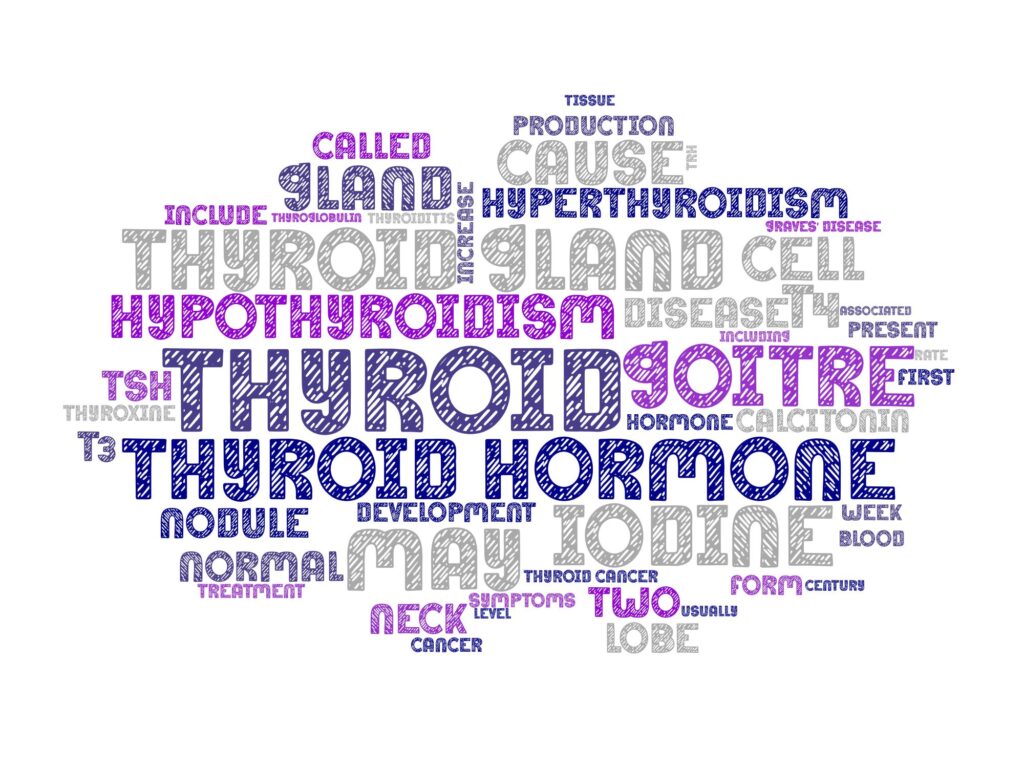
The human body is a complex mechanism that relies on many different systems to function optimally. One vital component of this system is the thyroid gland. This butterfly-shaped gland, located at the base of the neck, plays a crucial role in your metabolism, growth, and development. Disruptions in its functioning can lead to a host of health problems. This blog post aims to delve into the labyrinth of thyroid disorders, helping you understand their symptoms, causes, and effective management.
Understanding the Thyroid Gland and Its Function
The thyroid gland secretes hormones—chiefly thyroxine (T4) and triiodothyronine (T3)—which regulate body temperature, heart rate, and metabolism. It’s like a control center for your body’s energy use. The gland’s hormone production is regulated by the pituitary gland, which releases Thyroid Stimulating Hormone (TSH) as needed.
Common Thyroid Disorders
The most common thyroid disorders include Hypothyroidism, Hyperthyroidism, Goiter, Thyroiditis, and Thyroid Cancer.
Hypothyroidism is a condition characterized by an underactive thyroid, producing insufficient hormones to meet the body’s requirements. This can result in weight gain, fatigue, depression, sensitivity to cold, and slow heart rate.
In contrast, Hyperthyroidism occurs when the thyroid gland is overactive and produces excess hormones. This leads to rapid heart rate, weight loss, nervousness, irritability, and intolerance to heat.
A Goiter is an abnormal enlargement of the thyroid gland, often due to iodine deficiency, while Thyroiditis refers to the inflammation of the thyroid gland.
Thyroid Cancer, though rare, can occur when cells in the thyroid mutate and begin to multiply.
Causes of Thyroid Disorders
Various factors can trigger thyroid disorders.
Iodine Deficiency: Iodine is critical for thyroid hormone production. Its deficiency can lead to disorders such as Goiter and Hypothyroidism.
Autoimmune Diseases: In conditions like Hashimoto’s disease and Graves’ disease, the immune system mistakenly attacks the thyroid gland, leading to Hypothyroidism and Hyperthyroidism, respectively.
Thyroiditis: This inflammation of the thyroid gland can be caused by viral or bacterial infection, immune system response, or certain medications, leading to Hypothyroidism or Hyperthyroidism.
Radiation Exposure: Exposure to radiation, especially in the neck area, can increase the risk of thyroid diseases, including Thyroid Cancer.
Diagnosing Thyroid Disorders
Diagnosis often begins with a medical history and physical examination. If a doctor suspects a thyroid problem, they will likely order blood tests to measure levels of TSH, T3, and T4. In some cases, imaging tests such as ultrasound or radioactive iodine uptake test might be required.
Managing Thyroid Disorders
The treatment for thyroid disorders depends on the specific condition and its severity.
Hypothyroidism is usually managed with daily hormone replacement tablets, which restore the body’s hormone levels and reverse the symptoms. The most common medication is levothyroxine.
For Hyperthyroidism, treatment options can include antithyroid medications, radioactive iodine, or in some cases, surgery. Beta blockers might also be used to alleviate some symptoms.
A simple iodine supplement can usually prevent or treat a Goiter due to iodine deficiency. However, if the Goiter is large or causes difficulties breathing or swallowing, surgery may be required.
Treatment of Thyroiditis depends on the cause and symptoms. It may include pain relievers, hormone replacement, or corticosteroids. In the case of Thyroid Cancer, surgery, radioactive iodine, radiation therapy, chemotherapy, or targeted drug therapy may be utilized.
Conclusion
Thyroid disorders are common, affecting millions of people worldwide. They can cause a broad range of uncomfortable symptoms that can affect the quality of life. However, with proper diagnosis and treatment, most thyroid disorders can be effectively managed.
A healthy lifestyle, including a balanced diet, regular exercise, and stress management, can also contribute to maintaining good thyroid health. Remember, early detection is key to managing any health condition, including thyroid disorders. Regular check-ups and consultations with healthcare providers can make all the difference.
Like the conductor of an orchestra, the thyroid gland orchestrates a myriad of bodily functions. It may be a small part of our body, but its role is immense. So, if you ever experience any symptoms that may suggest a thyroid disorder, do not dismiss them. Seek medical advice promptly and take steps towards protecting this essential aspect of your health.
